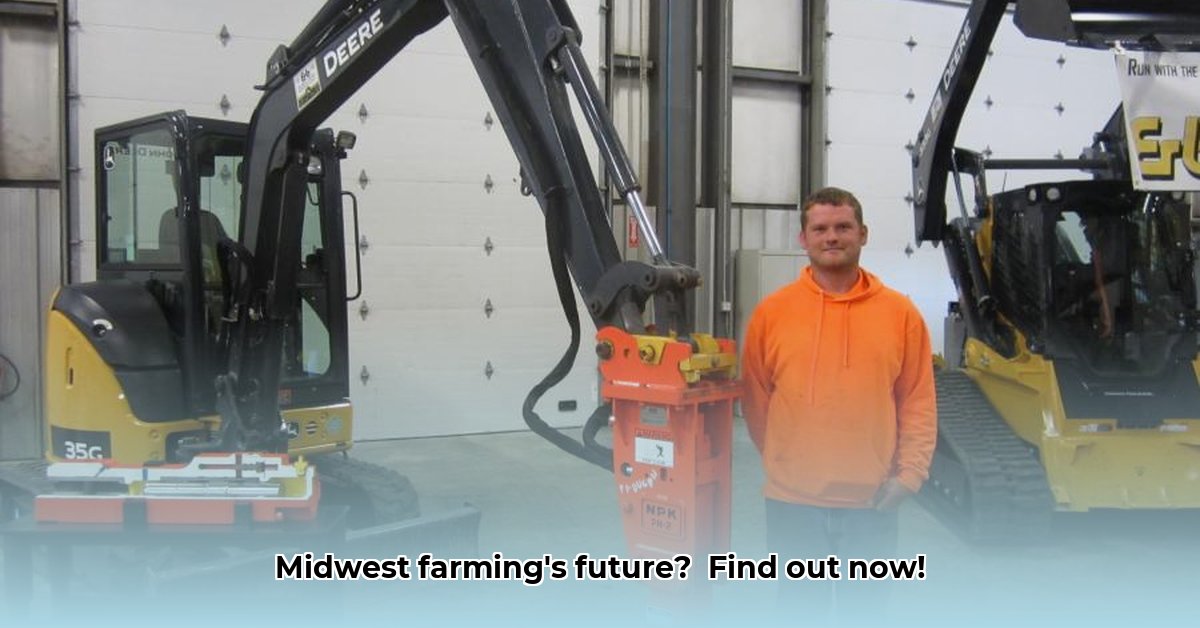
Erb Equipment Acquisition: A Midwest Agricultural Powerhouse Emerges
The McCoy Group's recent acquisition of Erb Equipment marks a significant shift in the Midwest agricultural landscape. This strategic move unites two prominent John Deere dealerships, expanding McCoy's reach across Missouri, Illinois, Indiana, and Kentucky. The acquisition's impact extends beyond simple market share; it promises to reshape access to technology, influence farming practices, and redefine the competitive dynamics of the region. But will this expansion truly benefit farmers and promote sustainable agriculture, or will it introduce unforeseen challenges?
Expanding Reach and Access to Technology
McCoy Group's acquisition instantly boosts its presence with the addition of Erb Equipment's eight strategically located dealerships. This expanded network enhances farmers' access to John Deere equipment, a leading provider of cutting-edge agricultural machinery. This increased accessibility is particularly significant for farmers seeking sustainable farming solutions. John Deere's precision agriculture technologies, designed to optimize resource use and minimize environmental impact, are now within easier reach for a wider customer base. This expansion significantly impacts access to sustainable technology, a crucial aspect of modern farming. Is this a catalyst for widespread adoption of sustainable practices?
"This acquisition significantly expands our ability to serve farmers in the Midwest with the latest technology and support," says [Full Name and Title], [Position] at [McCoy Group]. "We are committed to providing our customers with the tools they need to succeed in a challenging market."
Operational Synergies and Potential Efficiencies
Beyond geographical expansion, the merger presents opportunities for significant operational synergies. Consolidation of parts distribution, service networks, and administrative functions is anticipated to create cost savings. These efficiencies could translate into lower prices for farmers, making sustainable technology more affordable and accessible. The integration of the two companies' IT systems, sales processes, and customer management strategies will be crucial to the success of this consolidation. However, any downtime or disruptions during the integration process could negatively impact customer service. Can these challenges be successfully navigated to unlock the full potential for efficiency gains?
Sustainability: A Crucial Element for Long-Term Success
While the acquisition emphasizes growth and market expansion, the long-term impact on sustainable farming hinges on McCoy Group's commitment to environmentally responsible practices. The integration of Erb Equipment provides an opportunity to promote sustainable technology and farming practices on a larger scale. However, whether McCoy Group prioritizes these environmentally-conscious operations remains a central question to be answered. How will McCoy Group's environmental, social, and governance (ESG) goals influence the expansion and integration of Erb's operations? This will serve as a vital barometer of their commitment to sustainable farming.
Navigating Risks and Mitigating Challenges
Integrating two large organizations presents inherent challenges. Cultural differences, operational disparities, and potential employee attrition are all possible risks. The success of this merger hinges on effective management strategies to mitigate these challenges. McCoy Group will need to carefully navigate the complexities of integrating sales teams, service departments, and IT systems to ensure a seamless transition for customers. Furthermore, maintaining a positive work environment and retaining the expertise of Erb Equipment's employees will be critical. What proactive measures will McCoy Group implement to ensure a smooth transition and successful integration?
The Future of Midwest Farming: A New Era of Innovation?
The McCoy Group’s acquisition of Erb Equipment possesses the potential to significantly alter the agricultural landscape of the Midwest. The improved access to leading-edge agricultural technology, combined with potential operational efficiencies, could drive innovation and sustainability. However, the long-term success of this integration will depend on the effectiveness of McCoy Group’s integration strategies and its dedication to sustainable practices. The forthcoming years will critically determine whether this merger delivers on its promise to benefit farmers and reshape the future of agriculture in the region. The next few years will be vital in assessing the lasting impact of this acquisition. Will it indeed signify a new era of sustainable innovation in Midwestern farming?